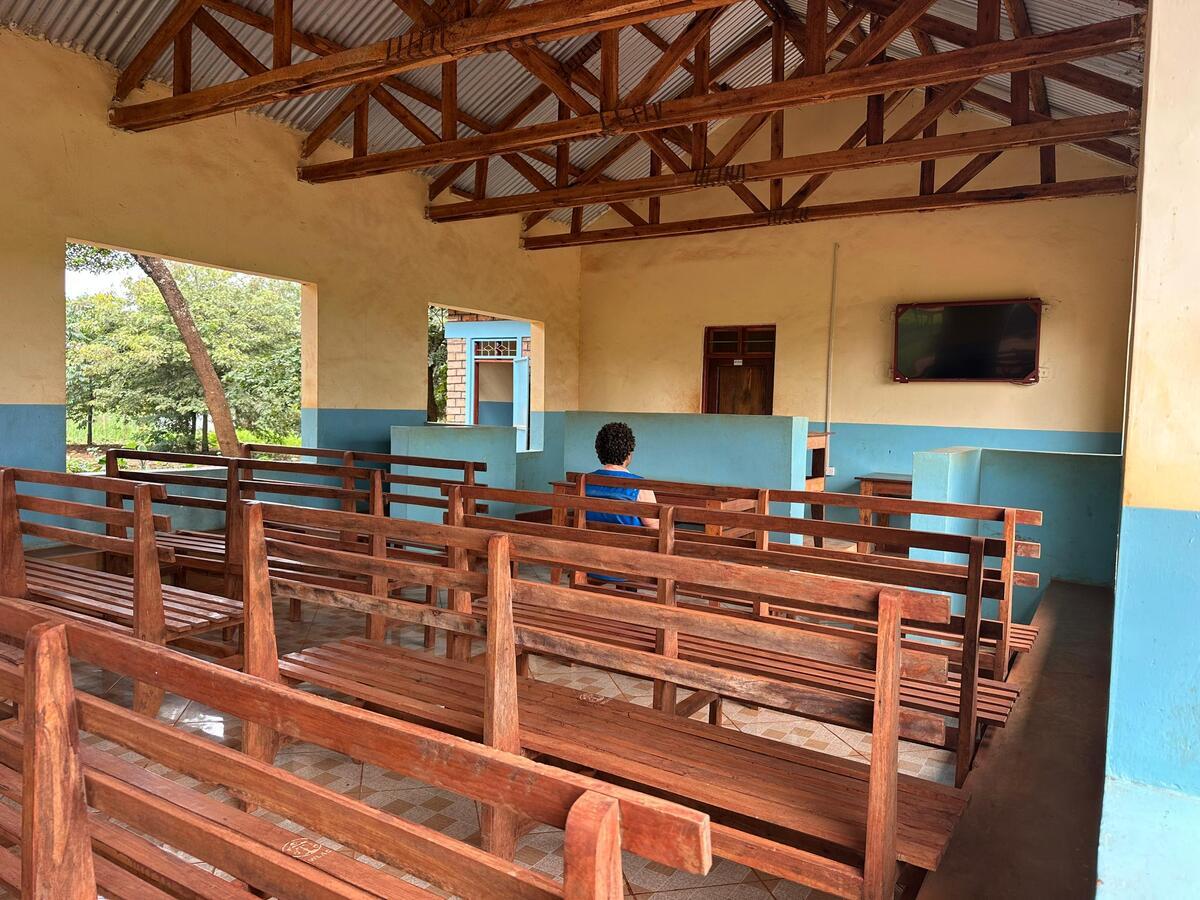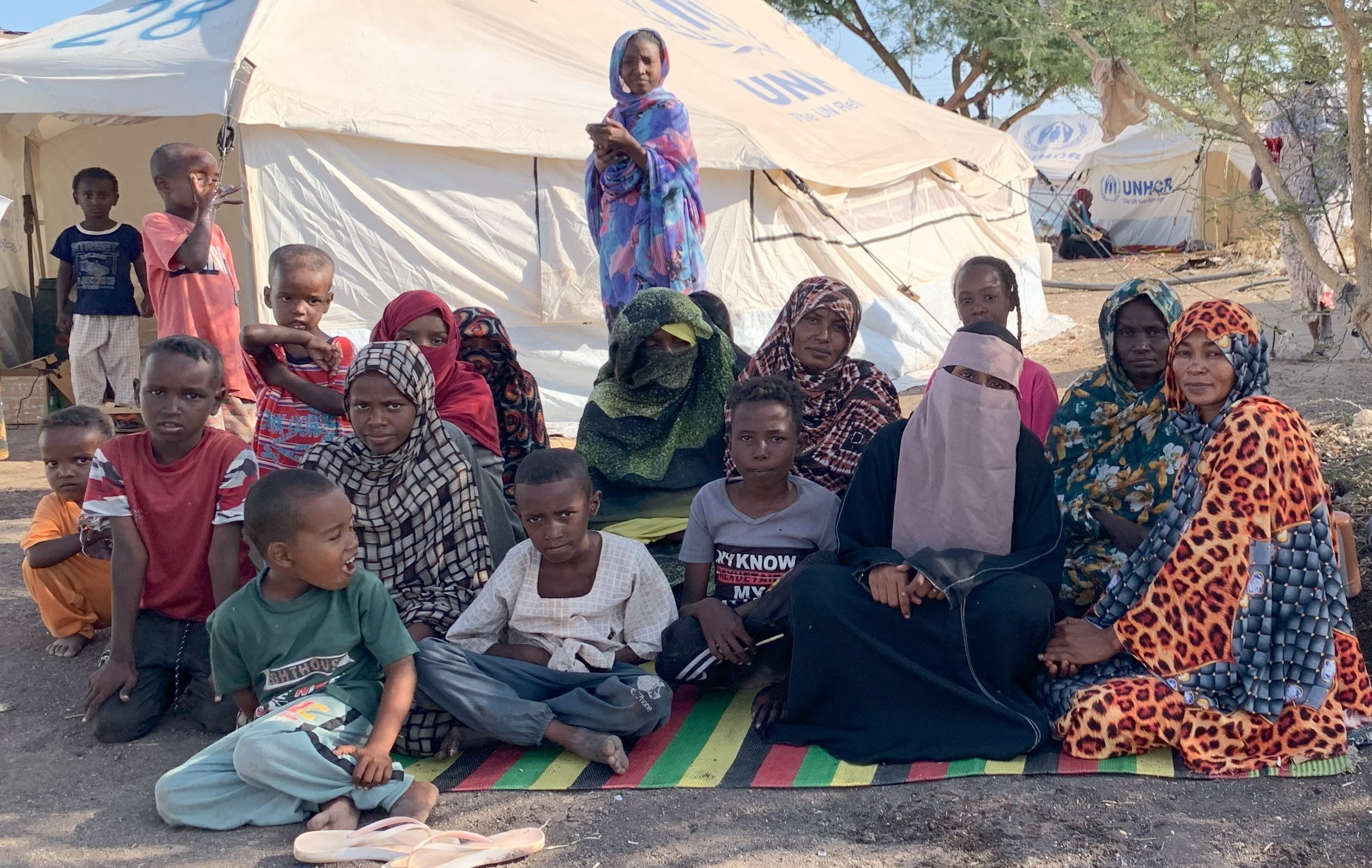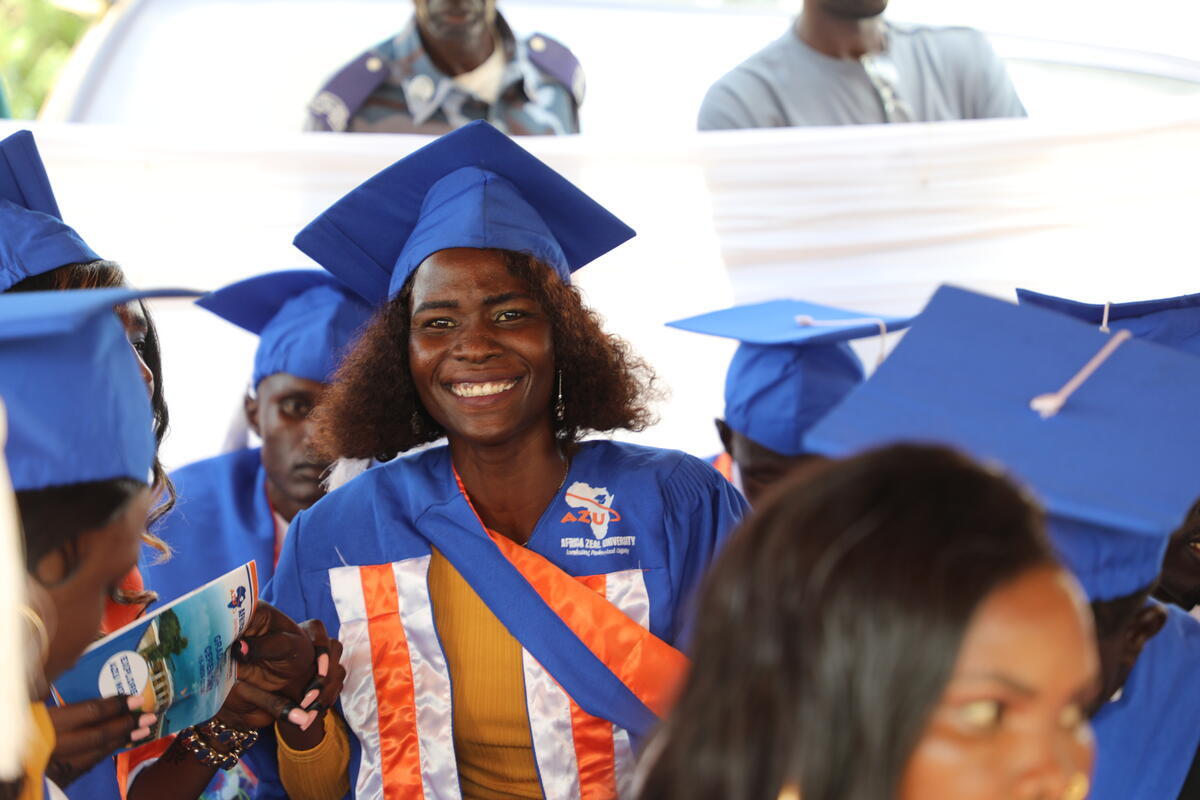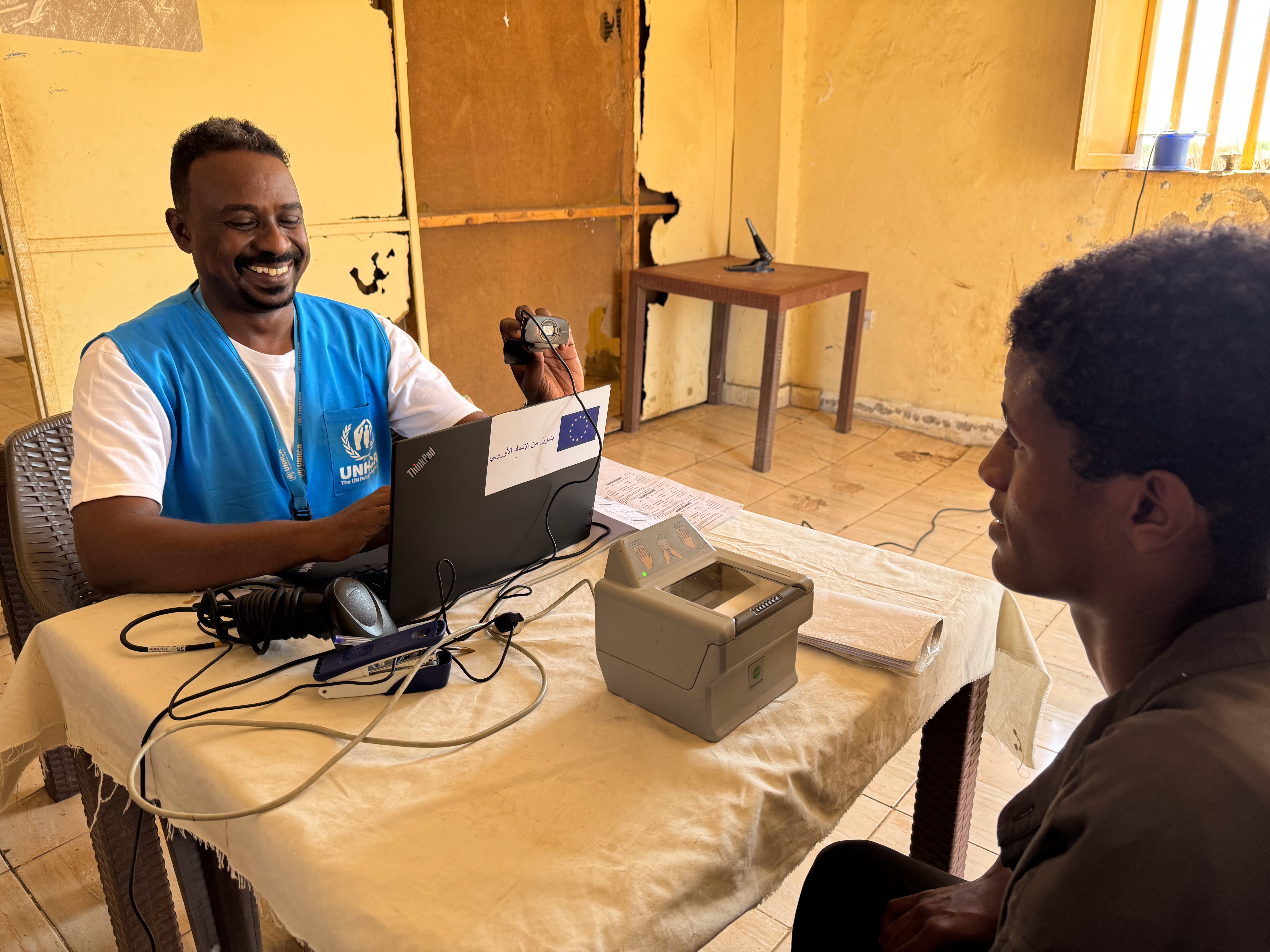Refugee teacher champions fight against GBV by advocating for girls to stay in school in Djibouti
Refugee teacher champions fight against GBV by advocating for girls to stay in school in Djibouti
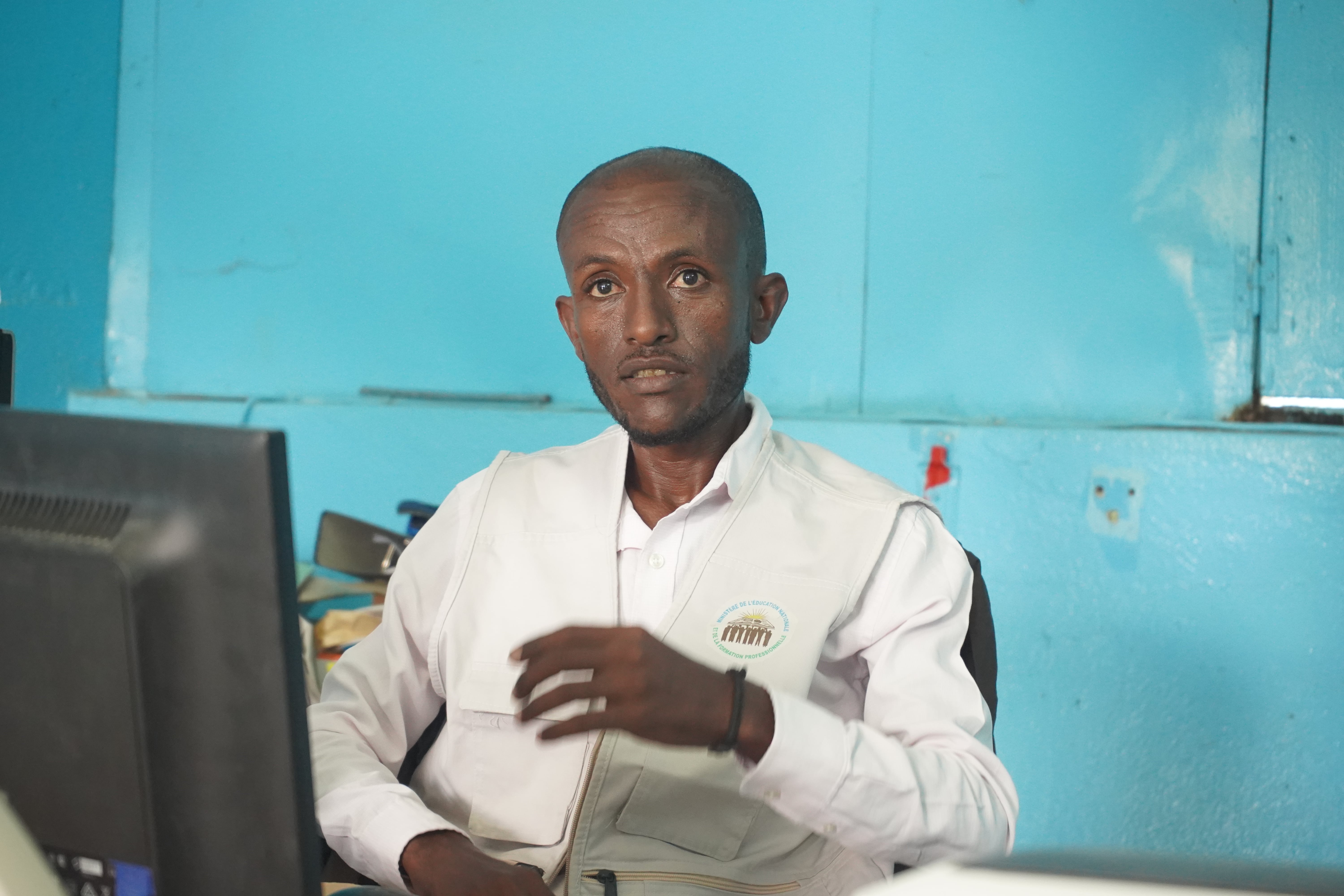
Tekle at one of the schools he teaches at in the Ali Addeh refugee village in Djibouti
Tekle Tekie, a 38-year-old Eritrean refugee who has been living in Djibouti’s Ali-Addeh refugee village since 2016.
He has been a teacher since 2000 when he was still in his home country and is now the director of five schools in Ali-Addeh. He is also the community representative for the Eritrean refugees and a member of the refugee village executive committee.
While pondering how he could help young refugees to continue their studies, he found a passion in addressing school dropout, a widespread problem in the refugee village of Ali-Addeh.
“We have noticed that about 10 to 15 percent of female students in primary schools in Ali Addeh drop out every year, explaining why the number of girls who enroll for secondary education is much lower than that of boys,” said Tekle.
Tekle is considered a male champion against gender-based violence (GBV) in his village. Being a member of the refugee village's executive committee helps him share relevant information and raise awareness on gender violence among students. He also works closely with relevant institutions such as UNFD – the National Union for Djiboutian Women, a national organization that has a partnership agreement with UNHCR, the UN Refugee Agency, to address more serious GBV issues.
At the end of November 2024, available data shows that there are 740 girls and 720 boys in primary schools in Ali-Addeh refugee village. However, the number drastically declines as girls progress in their education with only 25% of girls fully finishing their upper secondary education.
Tekle frequently encourages female refugee teachers in the school, some of whom were students themselves, to serve as role models and encourage young refugee girls to stay in school.
“Having my female colleagues interacting with the girl students can be life changing as they can share experiences and advice from their own educational journeys. Hopefully the girls will then be motivated and empowered to follow in their footsteps,” said Tekle.
Because of their precarious position, they are more likely to experience gender-based violence, including domestic abuse and exploitation. Financial and emotional forms of GBV are particularly widespread in the refugee villages due to negative coping mechanisms.
“Education is the key to even greater opportunities in life, for both men and women. The more educated they are, the greater their chances of success and contribution to society – and this is why we should all join in the fight against GBV and ensure women and girls can safely achieve their dreams,” said Philippe Creppy, UNHCR’s Representative in Djibouti.
In Djibouti, refugees and nationals enjoy equal access to education thanks to UNHCR and its partners. Even children with special needs and new arrivals have access, through the Special Need Education (SNE) and the Accelerated Learning Programme (ALP).
“Apart from awareness-raising sessions, our activities are rather limited due to lack of financial support. We are calling on other organizations to join the fight against GBV and help us keep refugee women and girls safe,” said Tekle.
In the future, Tekle plans to start GBV clubs in schools in Ali-Addeh refugee village.
“My hope is that all women and girls, especially refugees, have a better and more promising future. They are the leaders of the future, and we must keep fighting for a better future for them” he concluded.



